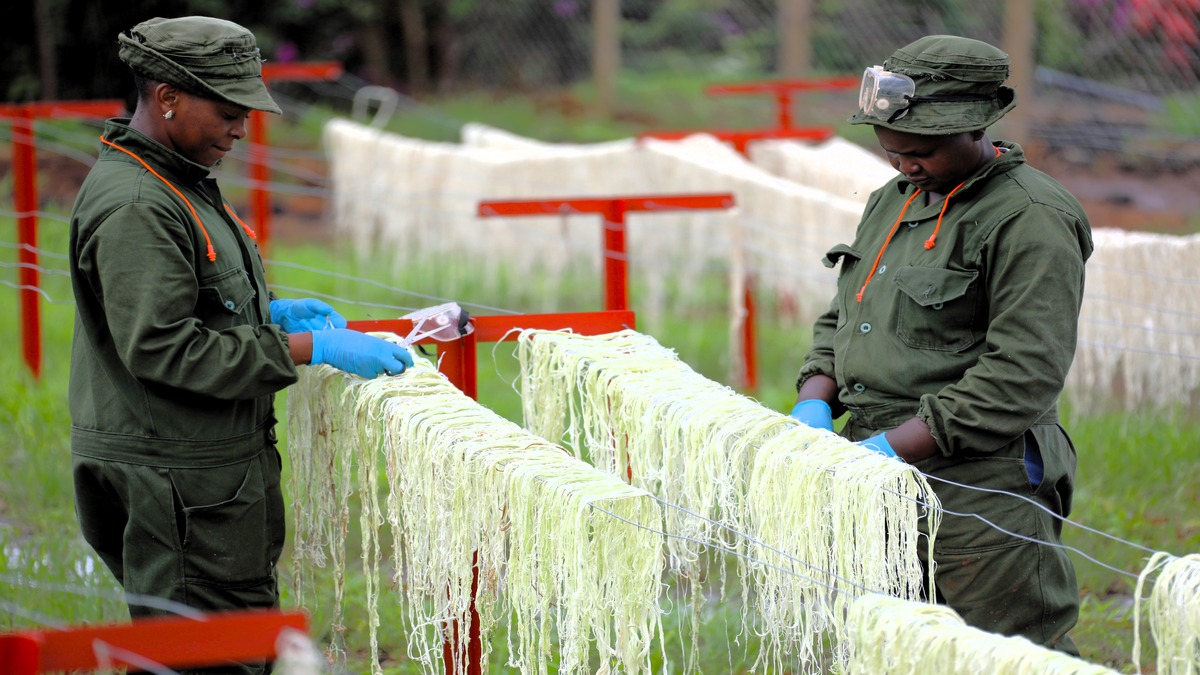
As part of the project “Strengthening Value Chains and Market Access in the ECOWAS Region”, the theme of natural fibres developed from agri-food residues will be discussed at an event in Dakar during 12–13 December 2023. The event is part of an initiative jointly implemented by UNCTAD, the Islamic Development Bank (IsDB), and the Arab Bank for Economic Development in Africa (BADEA) in partnership with four ECOWAS countries (The Gambia, Senegal, Togo and Sierra Leone). The objective is to promote intra-African trade, value addition and regional cooperation in the agrifood sector. A key output of the project is the formulation of initiatives by public and private stakeholders to foster trade, facilitate market access, and enhance the level of processing of agricultural commodities and attribute value to its by-products.
Following assessments of regional and national value chains as well as a series of national workshops held between October and November 2023, the regional workshop in Dakar will be held on 12 and 13 December 2023 to achieve the following three objectives:
- Experience sharing on key aspects relating to the development of regional value chains and intra-African trade
- Reviewing project concepts developed at the national level
- Strengthening regional cooperation and formulating joint initiatives for concrete impact.
The SMEP programme is contributing to the event by establishing connections with field projects which are currently deriving value from agricultural residues for the production and upscaling of natural fibres that can replace plastics. This is an area that is being actively discussed at the ongoing INC process and at the WTO Dialogue on Plastics, and in other world regions such as East Africa and in the Pacific. The event will also bring concrete examples of initiatives looking into the use of agricultural residues as non-plastic substitutes to replace plastics used in agriculture, a critical area in which FAO is developing a voluntary code-of conduct. This will complement the workshop’s objectives and bring to life potential focus areas for concrete national strategies that combine agriculture value chain development with indirect plastic pollution mitigation.
The event will involve representatives from Togo, Senegal, Sierra Leone and the Gambia, through their Ministries of Trade, Standard Bureaus, other relevant key public institutions in charge export promotion, MSME support, Agriculture, and Environment as well as Exporting businesses. Other regional and international institutions attending including the Islamic Development Bank, the Arab Bank for Economic Development in Africa (BADEA), ECOWAS and ISO.
Representatives from private sector initiatives including the Ghana-based FreshPact Hub, who is trialling plastics substitutes and agricultural biomass to replace conventional plastic mulch film in agriculture and food packaging, will be present. Representatives from Checkered Flag, based in Kenya, will also present their innovative work in using waste pineapple leaves to make textile fibres. These practical examples and their lessons will help drive investment into value-addition of other agricultural value chain residues, increasing intra-African trade and its value to society and for the environment.


